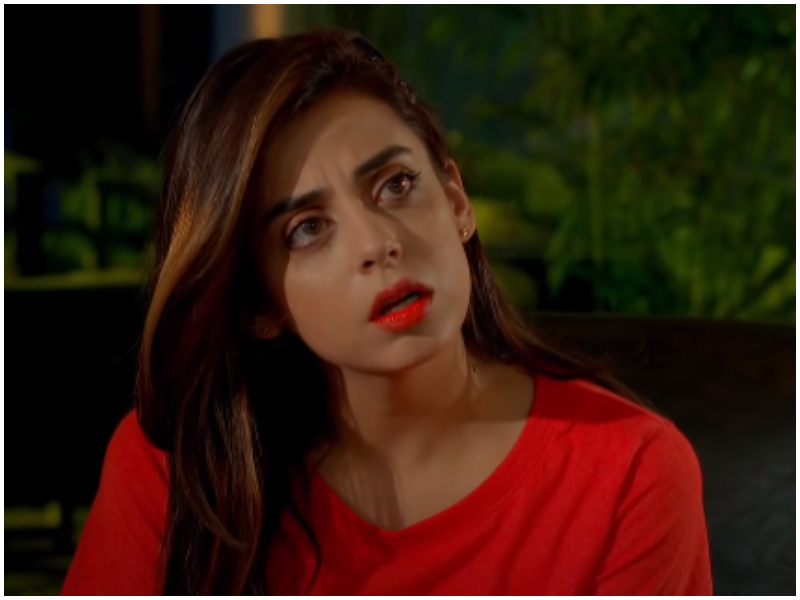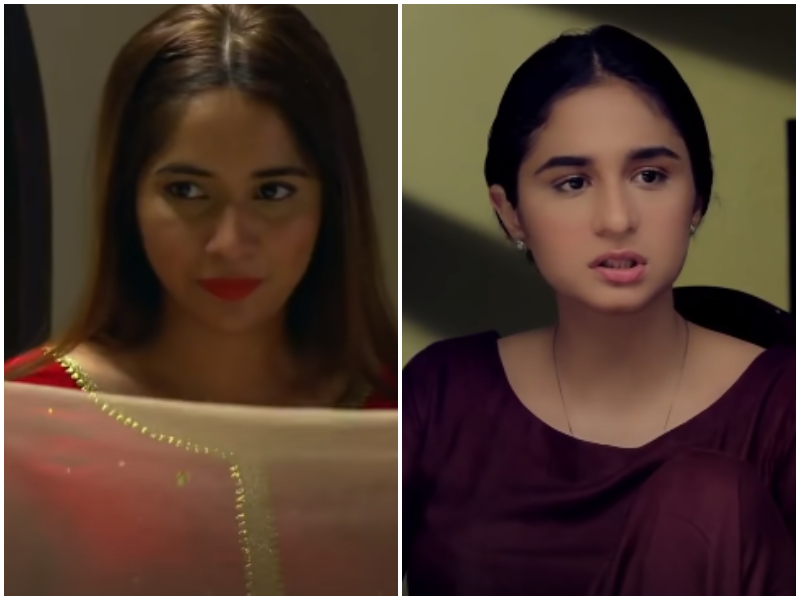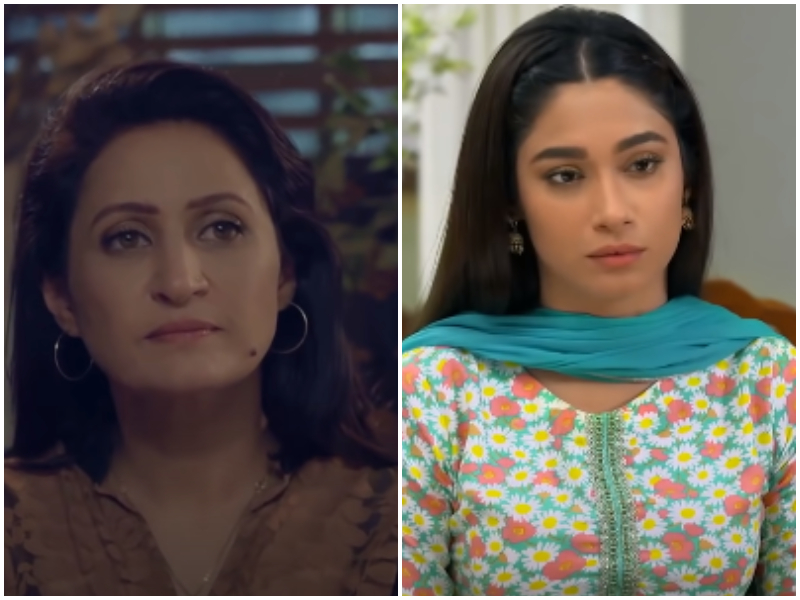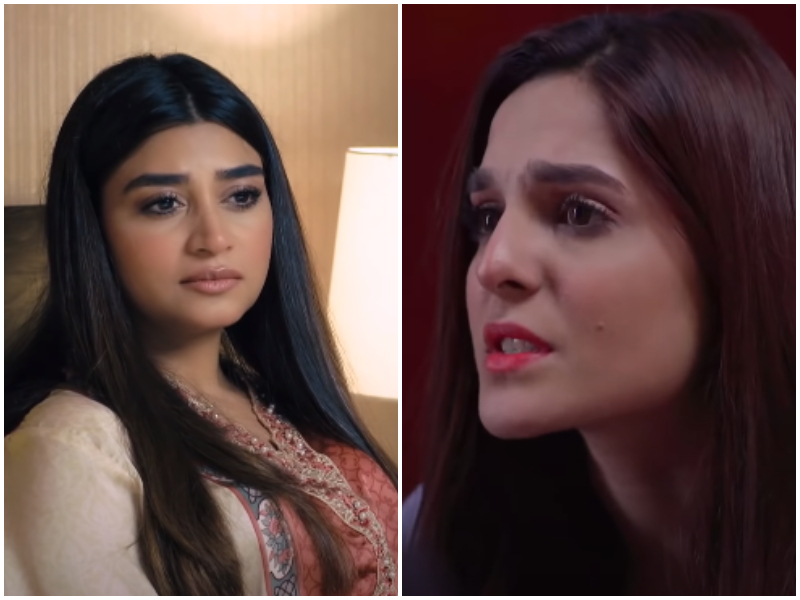Scripts in Pakistani dramas are full of tropes that build and define storylines. We have romantic interests, villainous characters, different sets of parents and siblings and all of them help in pushing the story forward. Even though it sounds stereotypical but a few intelligent writers know how to utilize these characters effectively. For instance, how an evil stepdad Sarwar doesn’t stick out like a sore thumb in Pyar Ke Sadqay or how an irksome sister like Miraal doesn’t spoil Sabaat for us.
One of these tropes, though, which stands out in every drama is ‘the other woman’. Whenever a hero and a heroine in a Pakistani drama start creating a romantic illusion on screen, there has to be trouble in paradise. It is mostly due to the involvement of a third person i.e. ‘the other woman’. Be it a distant cousin, a neighbour, a colleague at work or a friend’s friend, there is always a girl who is madly in love with the protagonist, who doesn’t even look twice at her. As though girls don’t have anything productive to do. This makes one wonder why writers think unrequited love is so popular amongst women.
Read: Are Pakistani dramas biased against dark skin?
Taking a hint from the most popular TV drama these days – Pyar Ke Sadqay – we saw that Shanzay (Yashma Gill) was least interested in Abdullah (Bilal Abbas) when he approached her for marriage. But now when her own marriage turns out to be a disaster, she is keen to break a home. This is by far the most reasonable way this trope has been used in a drama because at least it makes sense in the larger context of the plot, where Shanzay will make Abdullah realize that his marriage with Mahjabeen (Yumna Zaidi) isn’t just out of convenience but he will actually fall for her.

Yashma Gill as Shanzay in Pyar Ke Saqday
Unfortunately, this isn’t the case every time. There is a girl in every second drama who will happily break a home to get what she wants. In Kashf, there is Kashf’s sister, Zoya (Sabeena Farooq) who is constantly chasing her sister’s fiancé Wajdan (Junaid Khan). No one knows why! That’s not all there is also a khala ki beti, Guriya (Natalia Awais) in Ghalati who pines for Saad (Affan Waheed) despite knowing that he is now married and is struggling to handle a relationship with the love of his life Zaira (Hira Mani). In both cases, the men are least interested in these girls.

Zoya in Kashf & Guriya in Ghalati
We have also seen Sharmeen aka Sunny’s mom (Tara Mehmood) in Ruswai who is a widow, has a son of marriageable age and is aware that Dr Feroze is not interested in marrying her but she still schemes and plots to manipulate her mother-in-law. Similar is the case of Maham (Shameen Khan) who is Haris’ neighbour in Muqaddar. She happily lets Haris scold, insult or ridicule her for no reason because she is an attention seeker and is too clingy as if her life starts and finishes with Haris’ approval. Desperate much?

Sharmeen in Ruswai & Maham in Muqaddar
Lastly, we have another section who will target the better half of the man of their dreams. Zoya Nasir who plays Narmeen in Deewangi is that psycho cousin who not only ruins her father’s name and political career but a girl’s life as well to take revenge from her love interest, Sultan Durrani (Danish Taimoor). All this to tie the knot with him. Even though this results in a loveless marriage, her happiness lies in Nageen’s downfall.

Narmeen in Deewangi & Alishba in Ishqiya
Recently, we are witnessing a somewhat similar approach in Ishqiya where Alishba (Mehrunisa) cannot accept that Hamza (Feroze Khan) has a wife now. Although we know that Hamza is not even loyal to Rumi (Hania Amir), we have not seen him giving any indication that he was ever interested in Alishba. However, being the daughter of a business partner, Alishba is taking matters too seriously and is constantly locking horns with Rumi.
Majority of these characters were shown to create misunderstandings in married lives, ruining homes and families. While some are given arcs of redemption towards the conclusion, few end their own lives (like Sara in Humsafar). It is time that drama writers start introducing fresh TV tropes or at least align the presence of the existing ones according to the sensibilities of the viewers because girls in 21st century are more than mere accessories or tools of mayhem.





